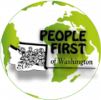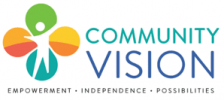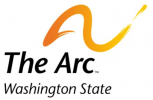Powering Potential
Advocacy in tandem with funding plays an integral role in shaping policies, programs and systems that enhance the lives of individuals experiencing intellectual and developmental disabilities. In 1963, President John F. Kennedy included people who experience disability as part of the Civil Rights movement, and called for a “reduction of the number of persons confined to institutions.” In the decades since, we have failed to develop a systematic, person-focused and inclusive approach to housing, health care, employment, education and other opportunities for individuals who experience IDD.
Increased funding is an important piece of the equation, but it isn’t enough. Progress demands a fundamental shift in the way we create community and elevate possibility for individuals experiencing IDD.
Getting into the Data
In 2019, we engaged with a diverse group of stakeholders to better understand how we might complement, amplify and otherwise support housing-related advocacy efforts for the IDD community. One of the most prevalent themes was the huge gap in data to support what advocates experience daily: There is a significant shortage of affordable, person-focused housing that meets the needs and preferences of individuals experiencing IDD in Oregon and Southwest Washington.
In response to this input, we commissioned a study with ECONorthwest to quantify the number of total individuals with IDD in Oregon and Southwest Washington, and to explore how many people were in housing that did not reflect their choices and preferences. We paired the findings from the ECONorthwest study with insights from individuals with lived experience, IDD advocates and housing sector leaders to develop a Companion Study that outlines key advocacy imperatives we are committed to collaboratively advancing.
Investing in Advocacy
Learn more about some of the organizations and initiatives we support:
Disability Rights Oregon promotes and defends the rights of individuals with disabilities, envisioning a society in which persons with disabilities have equality of opportunity, full participation and the ability to exercise meaningful choice. The organization provides tools and advocacy strategies to Oregonians with disabilities to help uphold their civil rights. The Kuni Foundation provided funding for the nonpartisan 2020 Easy Voting Guide that Disability Rights Oregon produces in partnership with the Oregon Secretary of State and with participation from the candidates. The Easy Voting Guide is targeted to the 494,500 Oregonians with intellectual or developmental disabilities. The guide provides non-partisan, unbiased summaries of the candidates and measures on the ballot in 2020; is written at a 5th grade reading level to accommodate people who experience a cognitive disability; and is fully accessible to people with low-vision or blindness.
Launched in 1977 as a grassroots effort in Washington state, People First of Washington is the oldest self-advocacy organization in the world run by and for people who experience IDD. Today the organization supports 33 chapters with more than 1,000 members. The organization works with state government, provider organizations and family groups to promote self-advocacy, self-determination and inclusion. It also supports high school students and transition programs. The Kuni Foundation provided a grant to support the organization’s efforts to assess and address the needs of its members in the midst of the COVID-19 pandemic, including health care, finances, support systems, ability to connect with others and access to technology. The effort also strives to address isolation by fostering a sense of community that will help people with developmental disabilities to assess, address and advocate for their own needs during the crisis.
Community Vision was founded in 1989 to support individuals’ move from Oregon’s Fairview institution into their own homes, providing independence with an emphasis on self-determination. The organization’s services expanded to meet needs beyond supported living for those who experience disabilities, including employment, housing resources, financial education, family support, advocacy and assistive technology. A leader in self-advocacy, Community Vision empowers people with disabilities to find their voice and advocate for what is important to them at the state and local level and facilitates the group Self Advocates Taking Action. A grant from the Kuni Foundation is helping Community Vision increase housing options available for people with disabilities through three main initiatives: the development of new affordable and accessible units, including rental assistance; the expansion of housing and support navigation services; and intensifying advocacy efforts focused on system change.
The Arc’s mission is to promote and protect the human and civil rights of people with intellectual and developmental disabilities, actively supporting their full inclusion. The Arc envisions a world where people with IDD thrive as equal, valued and active members of the community, with equal access to housing, education, employment and community resources. A grant from the Kuni Foundation is helping support efforts to address the unique needs of aging parents of adults with developmental disabilities who are currently serving as primary caregiver for their adult child. As parents age, a crisis is emerging as the need for housing and plans to support the transition for people who experience an intellectual challenge remain unaddressed. The Arc is supporting transitions in care, which will enhance housing stability.




